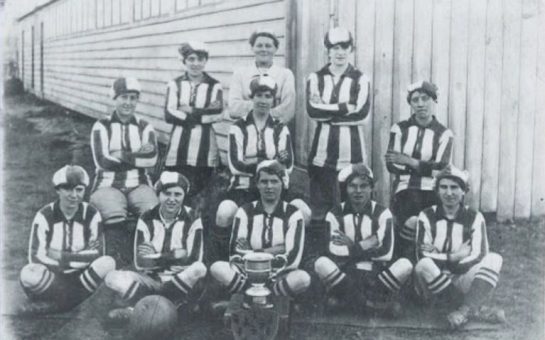While the vast, overwhelming majority of gamblers do so without any ill-effects, a small proportion do go on to develop gambling problems.
The gambling industry is at pains to help prevent those who are vulnerable from developing difficulties with their gambling behaviour, and working with regulators and other authorities, adopt an approach that promotes responsible and safe gambling practice.
However, there are some elements of the industry that are still attracting attention for all the wrong reasons.
In the process, some of these operators are giving other, legitimate operators a bad name.
One area in particular that has caught the mainstream attention, not to mention the notice of regulators, are Fixed Odds Betting Terminals – or FOBTs.
These machines, usually located within betting shops up and down the country, are designed to allow high stakes, fixed odds gambling with a quick turnover.
The result has been devastating in terms of their association with problem gambling, attracting the label of ‘the crack cocaine of the high street’.
Campaigners say FOBTs are a threat to those most at risk from developing gambling problems, and further, a substantial revenue generator for the bookies who deploy these machines on site.
Worse, it is thought that a significant portion of FOBT revenue comes from those who can ill afford to lose it, including people who have pre-existing gambling problems, or who start to develop the signs of a gambling addiction from playing these machines.
The Danger of FOBTs
Part of the problem with FOBTs is the stakes that are allowed to be gambled.
Depending on the game, it has been possible to gamble at up to £100 per spin.
Added to this is the rapid conclusion of each spin, which can take just a few seconds to register a win or a loss.
For those on a losing streak playing at high stakes, this can mean losses racking up in lots of £100 every minute or so – given ten minutes and the wrong attitude, it’s easy to see why some players run into problems.
Indeed, the BBC’s Panorama covered the issue in a programme in 2016, which told the story of a woman whose partner has committed suicide following his gambling addiction.
She attributes the bulk of his problems to FOBT machines, and as well as fronting the documentary, has been vocal in her campaigning for increased regulation on these machines.
The trouble with FOBTs is the dangerous combination of high stakes and high speed, plus the inherent attractiveness of the games on offer.
So what has been done about these machines in terms of regulation, and is there still further to go to ensure the crack cocaine of the high street becomes, at the very least, less damaging for those who play?
FOBT Campaigns
The industry has stepped forward to answer the criticisms of campaigners, allowing players a mechanism for setting time limits and spending limits, in addition to the possibility of self-exclusion.
But some campaigners want to take things even further, reducing the maximum available stake per spin to just £2 – just 2% of the current maximum allowed.
It is clear that, if adopted, this would have a significant impact on the fortunes of FOBT addicts.
Rather than spinning through hundreds on each losing pass, these players would instead have to play 50 spins to equal the same loss.
And the longer a game goes on, the more likely it is that the player’s next spin will be his last.
Other campaigners are calling for a removal of FOBTs from the high street altogether, and will settle for nothing less than a total ban.
While this seems unnecessarily limiting for the vast majority who do enjoy gambling, including with FOBTs, responsibly, it’s not hard to understand their point of view.
The solution to the FOBTs situation surely lies in a combination of regulation and improved industry practices.
The problem, unlike regulated UK online casinos, where measures such as self-exclusion are relatively easy to uphold because once a player self excludes they can no longer play at that online casino because a player is only allowed one account.
However self-exclusion from a betting shop is not that easy to enforce because no ID’s are required to enter.
While bookmakers have gone some way to protect their customers already, they could go further with FOBTs to limit the damage they are doing to vulnerable individuals and communities by enforcing ID verification.
For example a player would need to become a member of a betting shop and in order to use a FOBT a membership card would be required.
While FOBTs remain popular with bookmakers and customers alike, the impetus for further change may need to be forced from the top.
It remains to be seen whether new measures affecting FOBTs will help curb the problem still further, or whether more must be done to stop the crack cocaine of gambling from blighting the lives of those susceptible to gambling.
Featured image courtesy of Alan Stanton, with thanks




